To commemorate the centenary of Liverpool’s first of what would become back-to-back league titles on April 17, 1922, This is Anfield presents an exclusive excerpt from ‘The Untouchables: Anfield’s Band of Brothers’, by Jeff Goulding and Kieran Smith.
This passage of the book picks up after Liverpool had secured the title for the first time in 16 years, and reveals something of the mentality and philosophy of Liverpool Football Club 100 years ago.
With fascinating insight, Scouse legend Tom Bromilow reveals his thoughts on the merits of defence vs. attack, the value of teamwork, and illustrates how the collectivist philosophy was as prevalent at Anfield a century ago as it was under Shankly and Paisley, and continues to this day under Klopp.
‘Untouchables: Anfield’s Band of Brothers’; Chapter 13: Celebrations and Speeches
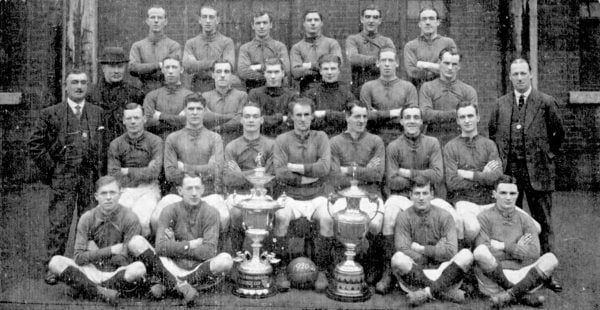
Liverpool had marched to the title, despite their forwards being outscored by their counterparts in rival teams, and on many occasions they had battled to victory by no more than a single goal. And Bromilow felt that Liverpool’s success was owed not to simply possessing a great attack or a solid defence, but in all parts of the team working in harmony.
‘The secret to success in any football team is the team spirit,’ argued Tom, ‘and by that I mean that every man in the 11 should perform the duties of his position to the best of his ability, and a bit more than that – should be perfectly willing to lend a helping hand to a colleague who is in need of assistance. It may be said of this or that football team that there are weak spots in the side, but so long as every man does his level best, with all working harmoniously with one another, then these weak spots do not reveal themselves very easily; an 11 with only moderate individual ability may be a formidable team as a collective force. ’Tis not in a football team to command success, but every individual can do his best to deserve it by trying all the time.’
This is the essence of what many modern supporters recognise as the ‘Liverpool way’. It is interesting to note that long before the days of Billy Shankly and Bob Paisley, this collective mentality was evident at Anfield. Indeed, no team can succeed without it. In advocating such an approach, the likes of Shankly and even Jürgen Klopp are standing on the shoulders of giants.
On Thursday, 29 June, at the Adelphi Hotel in Liverpool, a grand celebration banquet was held for the players, in which the club chairman W.R. Williams gave a speech in honour of the team. As he concluded his remarks, the men who had won the league were called to the front, individually, to receive a specially engraved gold watch and congratulations on behalf of the board.
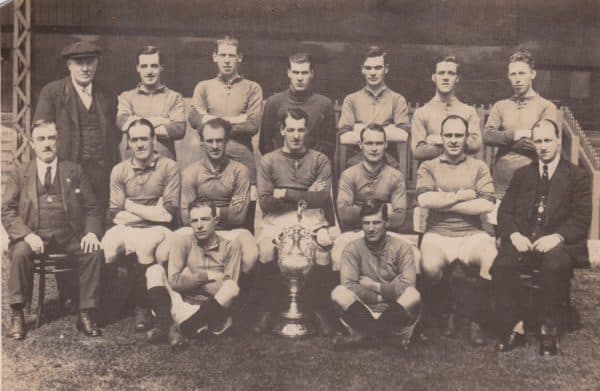
The packed ballroom included the entire 1905/06 championship-winning team and the chairman and secretary of Everton. Athletic News, on 3 July 1922, reported the proceedings in detail:
‘There was a handsome gathering of shareholders. Mr W.R. Williams presided. A great honour was paid to the team of 1921/22. The players with the unavoidable exception of Scott sat at the centre table and each was presented with a gold watch.
‘Equally interesting was the gathering of the league championship team of 1905/06, all of whom were present looking very well. They were Sam Hardy, Alf West, Billy Dunlop, Tom Chorlton, Maurice Parry, Alex Raisbeck, James Bradley, Arthur Goddard, Robert Robinson, Joe Hewitt, Sam Raybould, John Cox, Jack Parkinson, and John Carlin.’
Members of the 1921/22 squad were present, except for Elisha Scott who appears to have had transport problems. Joining them were Ashworth, Billy Connell and George Patterson.
After proposing a toast to the champions old and new, and wishing Everton a good season for the coming campaign, Williams would recall how difficult winning the league had been 16 years earlier, remembering how the celebrations had taken place at the less salubrious Carlton Rooms and how shareholders had been given a ticket for three drinks at the bar. The club, he said, had barely £20,000 in the bank back then.
The newspaper report continued, ‘In making the presentation of watches Mr Williams named each individually and made a happy tribute to all. Elisha Scott, he said, was absent through travelling difficulties. McNab was named as Bob Ferguson’s protégé, Bromilow he styled as successor to Makepeace – a happy local coupling that was appreciated by all present.’
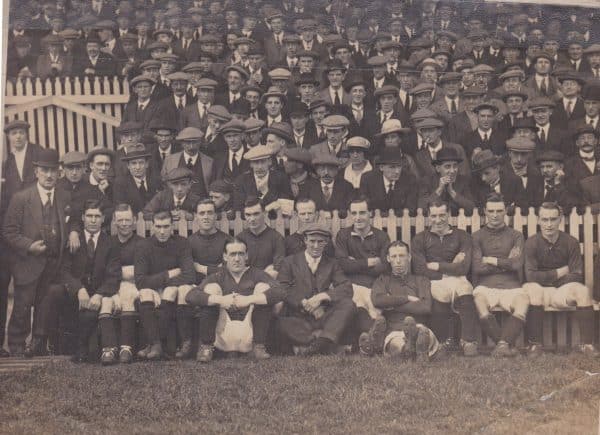
Bob Ferguson, like Jock McNab, was a native of Cleland, who had played for the Reds for three years between 1912 and 1915. He was known for his great strength and sound judgement, and this was no doubt a great compliment to Jock. In paying tribute to Tom Bromilow, Williams was drawing a comparison with Harry Makepeace, a former Everton stalwart and England international. Harry was as proficient at cricket as he was at football and played four Test matches for the England cricket team. Tom was also known to be a fine cricketer as well as being capped for his country in football. The report continued:
‘He spoke feelingly of the captain, Donald Mackinay [sic], and Ephraim Longworth and William Lacey, and expressed the hope that Lacey would be with them until they won the cup. Tribute was also paid to the newly married forwards, Dick Forshaw and Fred Hopkin, and in the case of Harry Chambers, Mr Williams said he was the last player signed on by Tom Watson before his death in May 1915.’
It was then the turn of Donald McKinlay to speak. As Williams took his seat, and the applause faded, the captain of the team rose to his feet to say a few words:
‘Well, gentlemen, this is not a game of mine, speechmaking, but I want to say how grateful and appreciative we are of the words and the watches. If you promise us such a good time as tonight when we win the cup we will bring that elusive pimpernel to Liverpool.’
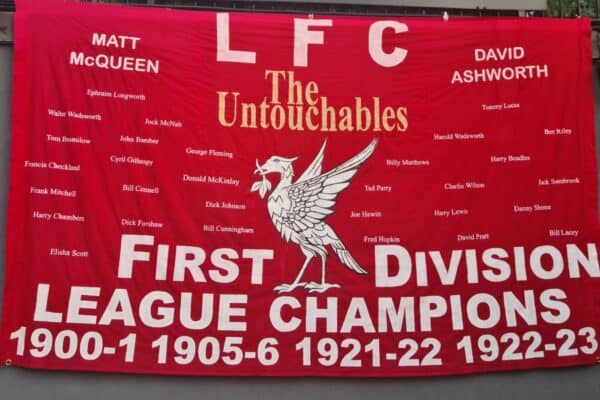
The celebration speeches concluded with further tributes to the backroom staff, including Charlie Wilson, George Fleming and Bert Riley. In referring to William Connell, Williams observed the trainer had ‘grown white in the service of the club’. There followed a touching moment, reported in the Staffordshire Sentinel on Saturday, 15 July 1922, in which the board of directors voted to award 1906 championship winners Alf West, James Bradley and Sam Raybould £50 each.
The three men had fallen on hard times and were victims of the steep economic downturn during the 1920s. That the board saw fit to help them out financially is noteworthy, and perhaps a sign of how the club in this period looked after its own.
Liverpool FC had truly become a band of brothers, each with their own backstories, some of them deeply traumatic, but they had been forged together and were much stronger for it. That strength would be tested severely as they plotted the defence of their crown the following season. A shock departure and the return of a champion from a bygone era would see them come through challenges that would derail lesser teams and emerge ‘untouchable’.
The Untouchables: Anfield’s Band of Brothers by Jeff Goulding and Kieran Smith is published by Pitch Publishing, and can be purchased at all good book stores and from Amazon here.

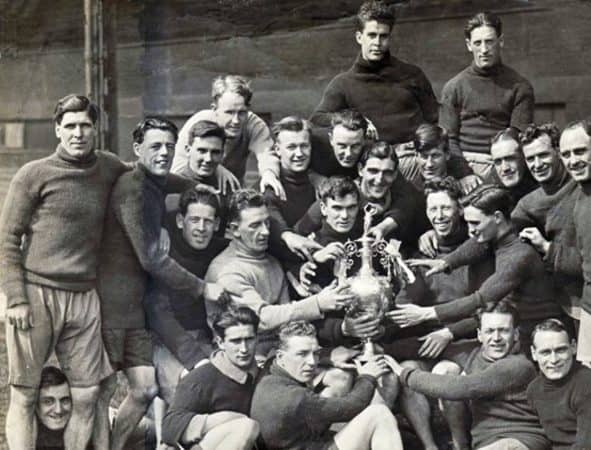

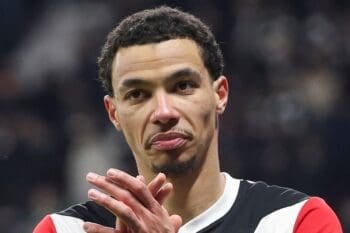

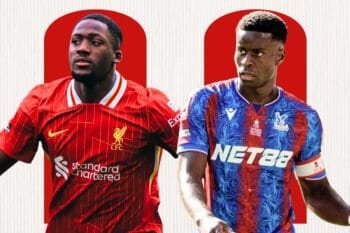
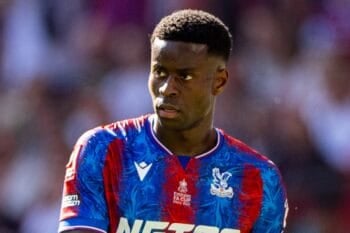
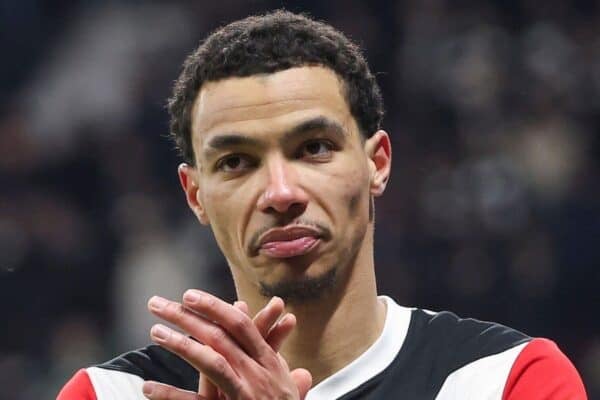
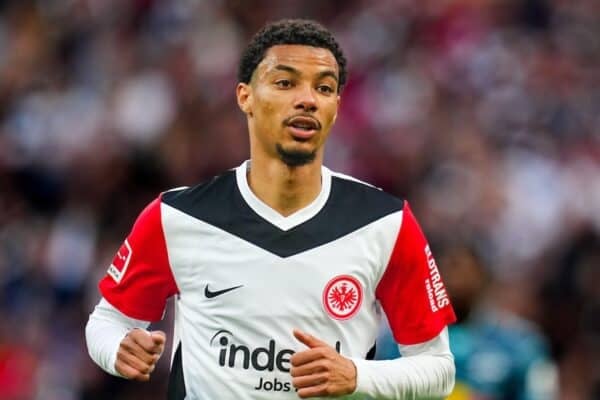
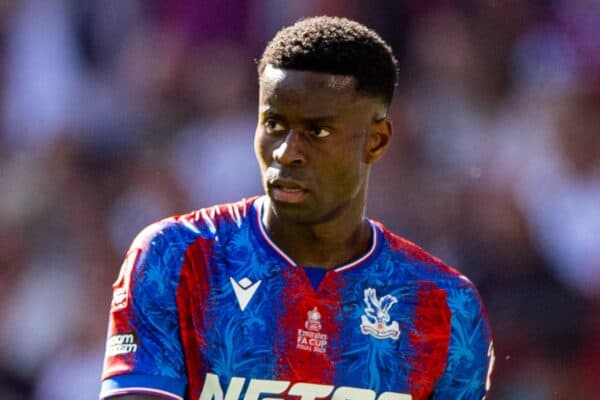
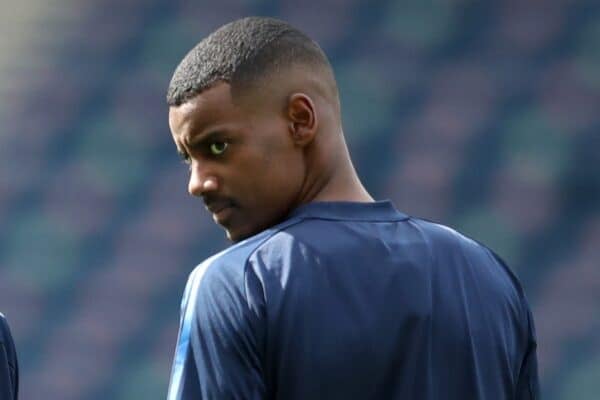
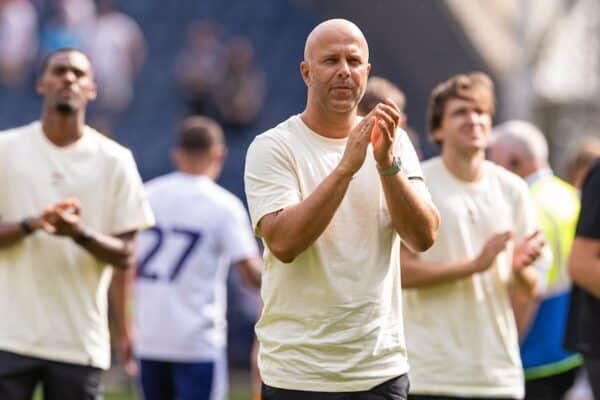
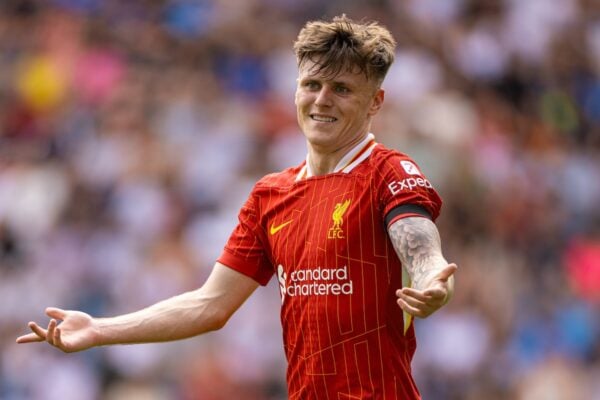
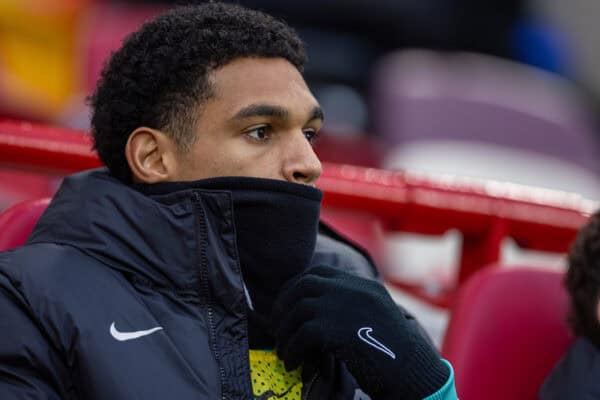
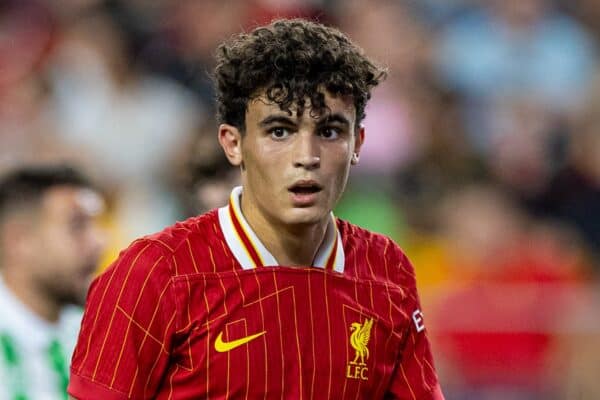
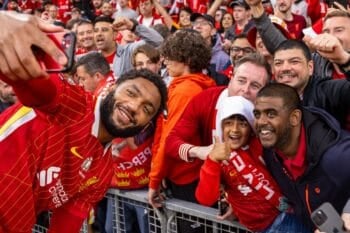
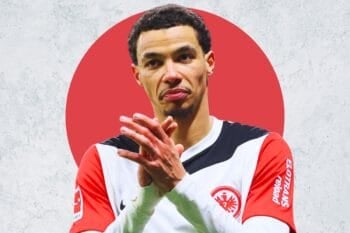

Fan Comments